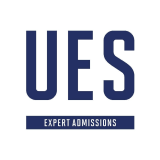This informal CPD article ‘How to choose a course or major’ was provided by UES Education, specialists in international university and school admissions, working with top schools across the UK and Europe to provide a bespoke service for those who want the best possible application support in the UK.
Choosing a subject to study at university can seem daunting: a student’s chosen academic path shapes their university experience, personal growth, and career prospects. To support students making this important decision, schools and counsellors should encourage students to consider not only their future aspirations, but also their current strengths and passions.
Choosing a course
In the UK, students must apply to a specific university course, but US applicants do not need to do so. In the liberal arts model, they will take a range of courses across several subjects, then specialise later on. This gives them flexibility to explore their options before making a decision, but there are still several useful factors regarding course selection to keep in mind.
A clear way to direct students to start thinking about what they would like to study at university is by reflecting on their chosen A-Level and IB subjects. Encourage them to consider what they enjoyed studying most, and what subject matched with their natural skills and interests, their values, and what they are passionate about. It is also important to consider how certain academic subjects will intersect with the university courses students choose. For example, many are interested in business, economics, or engineering: subjects for which maths is crucial (and often required). If students want to enter these fields, it is important that they understand which academic subjects correspond to those, and what individual colleges’ admission and course requirements are, as these may differ from one another.
Considering future career
Careers departments and counsellors should also encourage students to think about their intended career paths. It is okay for US applicants to be undecided on this, as discussed in more detail below, but it is good for them to consider what they might like to do for work as adults. There are a range of online career-matching tools that can be a good starting point for discussions about this. Students can also reflect on their experiences at school as a springboard for thinking about careers. Counsellors can ask students: do you like working on your own or with others? Do you prefer to create something new, or to work with established facts? Are you ambitious to get ahead in life and be recognised for your achievements, or are you more concerned with doing what you enjoy?
Once students have an intended field in mind, they should do a deep dive into the content of their chosen course, as this will vary widely from university to university in the US. What are the required classes within the course, and for all students at that university? Are there pre-requisites, either at university or in high school? Are there highly specific programmes relevant to a student’s interests that are offered only at a few universities?
Benefits of US University model
Many students will still be unsure about their university course and career goals, which is natural at their age! The US is a great university destination for those students who need more time to explore a range of subjects before specialising. US universities follow a model in which students study a broad range of subjects at the outset, then specialise later on by choosing a ‘major’ (main course of study). Students can also double-major, or choose a major and a ‘minor’ (a secondary course of study). This exploration can be a big help for students in finding their feet with course choice, and the opportunity to study two unrelated subjects can be really valuable. There is also flexibility to change majors during the first years of university, which removes a lot of the pressure and allows students to be immersed in a course of study without necessarily committing to it.
Conclusion
It can be difficult for teenagers to know what they want to study and what career they want to pursue. But by encouraging them to think through a few things before applying, schools and counsellors can ensure that they will be well-placed to choose a course, particularly in the US university system, which allows more flexibility and scope for exploration.
We hope this article was helpful. For more information from UES Education, please visit their CPD Member Directory page. Alternatively, you can go to the CPD Industry Hubs for more articles, courses and events relevant to your Continuing Professional Development requirements.













